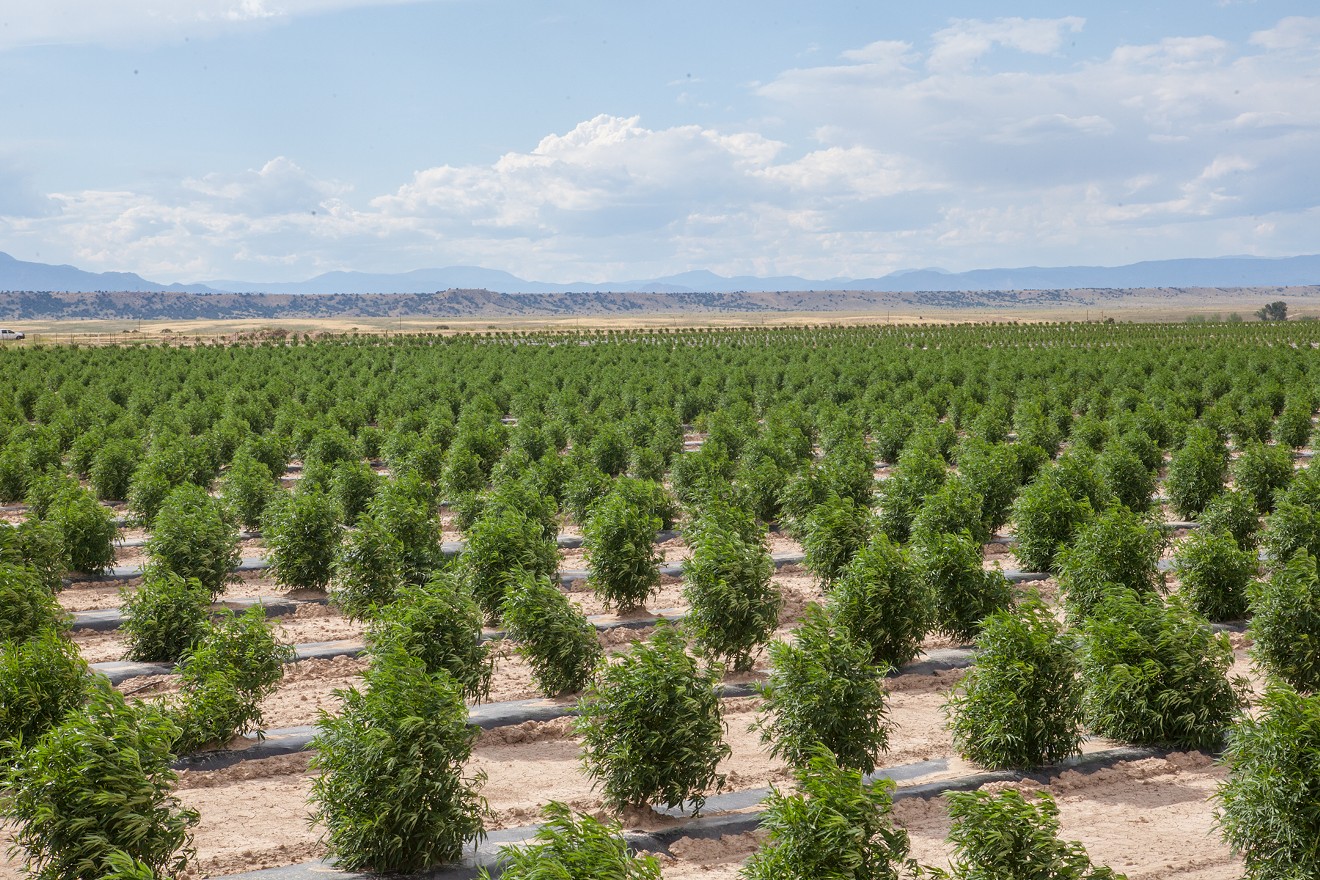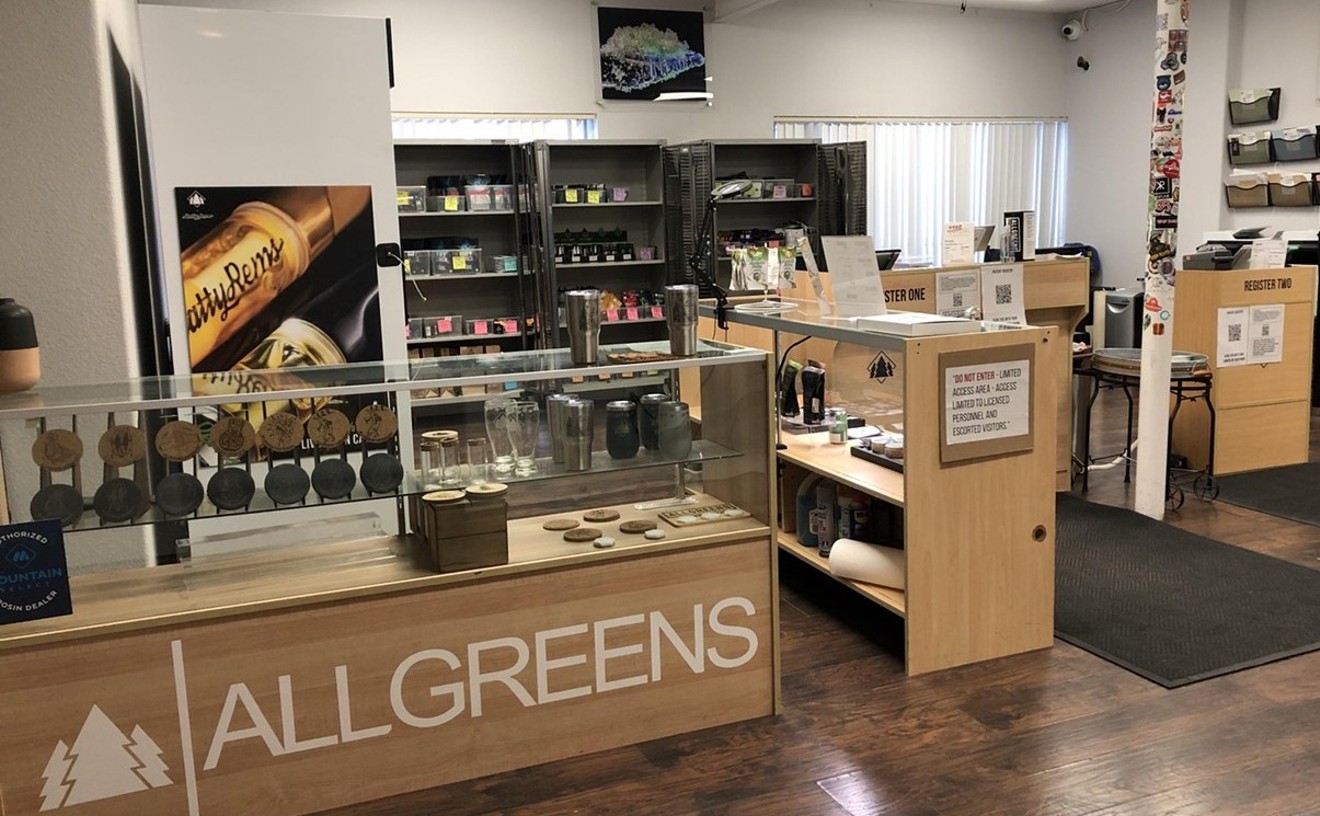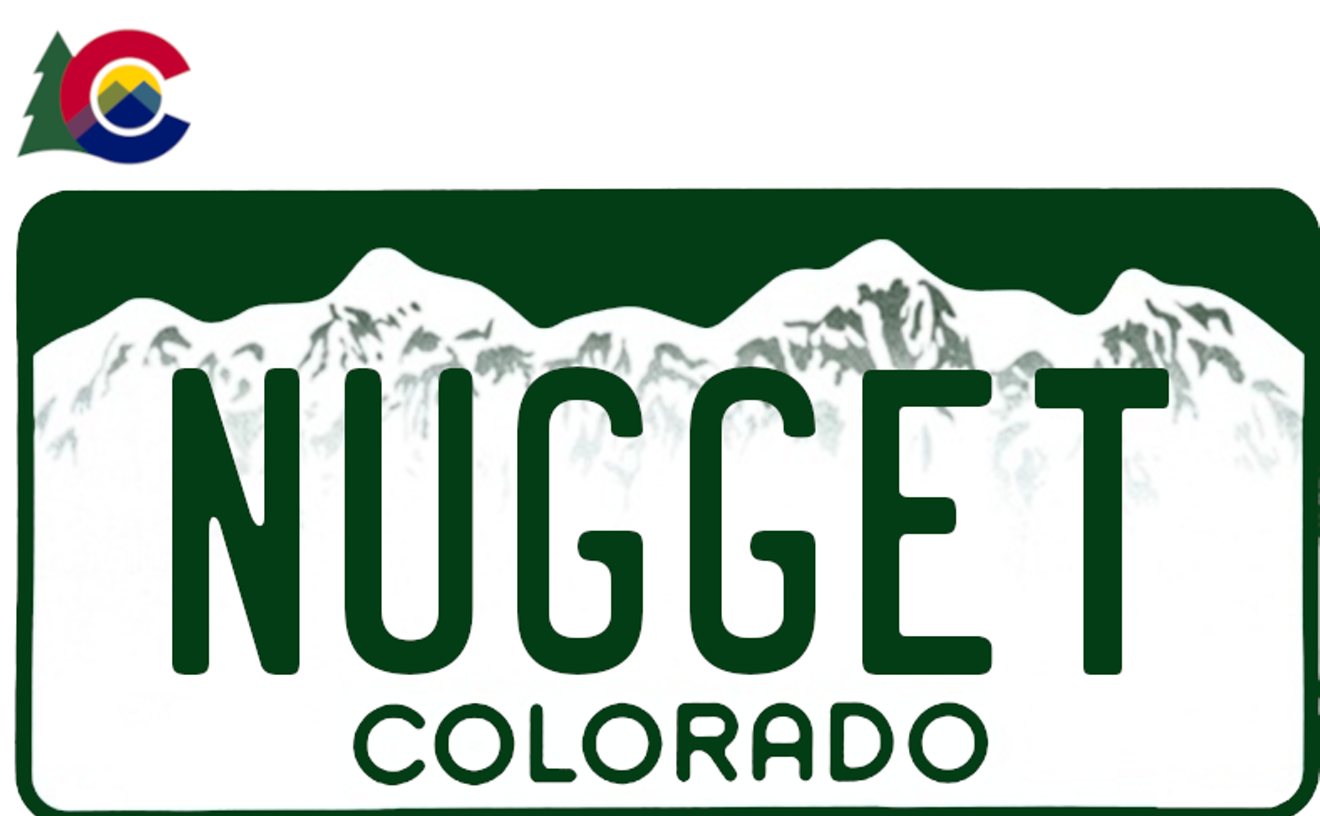Most hemp farmers across the country got a big boost when the United States Department of Agriculture released its first round of industrial hemp regulations earlier this week; the new rules took effect today, October 31.
“I applaud the USDA for moving forward on hemp rulemaking and recognizing hemp production as an agricultural activity,” Senator Cory Gardner said in a statement after the regulations were announced. "Legalized hemp has the potential to be a major boon to agricultural communities across Colorado, giving farmers another viable and profitable option for their fields."
But for farmers in states like Colorado, where hemp has been an established crop for almost five years, the new rules might not seem so progressive.
The language of last year's Farm Bill, the measure that legalized hemp, permits states to submit plans for their own hemp regulations, follow the USDA's regulations, or ban hemp production altogether. While the Colorado Department of Agriculture has indicated that it will submit a new hemp plan to the USDA in 2020, the state ag department had already implemented its own plan long before hemp was legalized federally late last year, and under that plan, Colorado became of the largest hemp-producing states in the country.
Shawn Hauser, a hemp attorney with Vicente Sederberg, says that Colorado will have to alter some of its hemp regulations to align more closely with the USDA regulations, and that could mean tighter rules for this state's farmers. Under the new, USDA-approved regulations, Colorado hemp farmers are likely to face stricter testing requirements for THC levels, she says, and have less opportunity to mitigate hot hemp, or plants that test above the federal government's maximum allowable level of THC (0.3 percent) in industrial hemp.
"The way the federal regulations are set up, they're going to affect every state significantly. Testing and sampling, specifically, are different from what most states have in practice," Hauser explains. "Federal rules are pretty strict with requiring hot hemp to be destroyed by a DEA agent. There is no opportunity for remediation or correction."
The new FDA rules do allow a “measurement of uncertainty” for farmers, which could let plants reach as high as 0.5 percent THC and still be considered acceptable by the USDA. However, industry supporters and farmers alike have been pushing for a 1 percent THC limit for some time.
Colorado farmers are currently given a couple of weeks to lower plants' THC levels if they test too high, but hemp's legalization and close connection to marijuana has spurred concerns of increased black market marijuana activity among law enforcement in certain states. Hauser suggests that states like Colorado and Oregon — both of which have legal and established marijuana industries — are better prepared to deal with such concerns, but she adds that more evolved markets are better prepared to roll with federal changes, too.
"Colorado and other states, because they're mature and have gone through these trials, kind of understand there is a need for remediation," she adds. "But because Colorado has one of the most mature industries, some of the hemp markets have anticipated these changes."
Federal hemp regulations that mandate 100 percent of hemp harvests to undergo THC testing would likely require more CDA staff, Hauser says, as this state's agriculture department only has enough bandwidth to test about 25 percent of hemp crops right now. Further, the USDA rules call for such testing to take place at labs certified by the Drug Enforcement Administration — and there aren't many.
And if hemp farmers lose their crops because of high THC levels, there's little that could help them in the form of insurance, as the new federal crop insurance program for hemp isn't likely to cover high THC levels, according to industry representatives.
Although the USDA rules are officially implemented today, the rules are only for the interim and will be replaced in two years; states have a year to either comply or send in their respective proposals for hemp regulations. The CDA's Colorado Hemp Advancement and Management Plan (CHAMP), a committee created by Governor Jared Polis to advance hemp policy in Colorado, will send the state's hemp proposal to the USDA within the next few months in hopes of fully complying with the USDA by the 2020 farming season, according to Hauser.
"There are some areas for improvement, especially around testing, disposal and sampling," Hauser says. "There is a public comment period — it's incredibly significant for legalized hemp farmers — so it's more important than ever to engage with the industry."
One of Colorado's largest hemp brands doesn't see the USDA's changes as a hindrance, welcoming the long-awaited federal guidance. According to Derek Thomas, vice president of business development for Veritas Farms, the USDA's regulations will usher in a more defined and legal marketplace nationwide, which in turn will help Colorado's hemp industry grow.
"Inside of the Colorado ecosystem, not much is going to change. Colorado has had a very robust legislative framework from the onset, and a lot of states have replicated that model," he says. "Not a lot in Colorado will change too much. However, outside of Colorado, things like interstate commerce will see a lot less restriction from the federal government."
With the USDA nearing completion of its hemp regulations, Thomas says the next domino that must fall is held by the Food and Drug Administration, the federal body responsible for regulating products with CBD and other cannabinoids derived from hemp. Currently, the FDA views CBD as an illegal ingredient for products meant for human and animal consumption, but admits that the agency lacks resources to enforce the policy as the largely unregulated CBD industry booms.
Veritas has deals with national drugstore chains to sell its CBD-infused lotions and topicals (products that are legal under FDA standards), but Thomas says that finding national carriers to sell its CBD tinctures and edibles is much harder in the current landscape.
"The big piece that is lingering now from the federal government is the FDA," he says. "Most national chains are sticking to the wait-and-see model for guidance form the FDA, but we've seen a lot of regional retailers take interest in CBD ingestibles as we wait."
[
{
"name": "Air - MediumRectangle - Inline Content - Mobile Display Size",
"component": "12017618",
"insertPoint": "2",
"requiredCountToDisplay": "2"
},{
"name": "Editor Picks",
"component": "17242653",
"insertPoint": "4",
"requiredCountToDisplay": "1"
},{
"name": "Inline Links",
"component": "18838239",
"insertPoint": "8th",
"startingPoint": 8,
"requiredCountToDisplay": "7",
"maxInsertions": 25
},{
"name": "Air - MediumRectangle - Combo - Inline Content",
"component": "17261320",
"insertPoint": "8th",
"startingPoint": 8,
"requiredCountToDisplay": "7",
"maxInsertions": 25
},{
"name": "Inline Links",
"component": "18838239",
"insertPoint": "8th",
"startingPoint": 12,
"requiredCountToDisplay": "11",
"maxInsertions": 25
},{
"name": "Air - Leaderboard Tower - Combo - Inline Content",
"component": "17261321",
"insertPoint": "8th",
"startingPoint": 12,
"requiredCountToDisplay": "11",
"maxInsertions": 25
}
]












